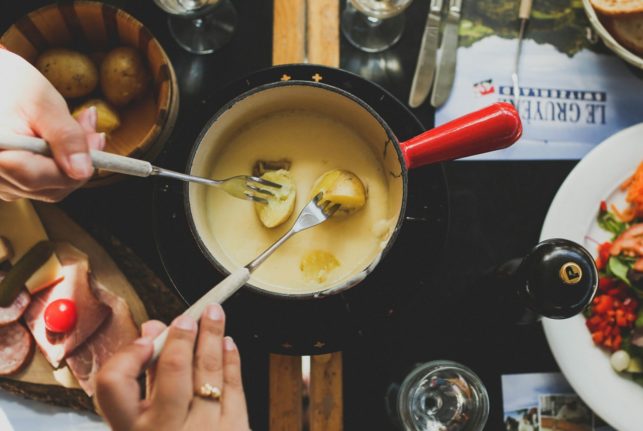Delta variant now accounts for over 70 percent of new cases
Swiss epidemiologists predicted that the Delta mutation would spread rapidly and become dominant by the end of summer.
From roughly 30 percent of new cases in early July, the variant now accounts for 70.1 percent, spreading quicker than initially predicted, according to figures from the Federal Office of Public Health (FOPH).
As this FOPH chart shows the number of Delta cases has climbed dramatically.

The spread of the highly contagious Delta correlates with more new cases detected in Switzerland, which have tripled since the end of June.
READ MORE: How Switzerland plans to contain the Delta variant
More heavy rains are expected in central Switzerland
The Federal Office of Meteorology (MeteoSchweiz) issued level 2 to 3 (medium to high) flood warnings for lakes Thun and Luzern for the coming days.
Warnung des Bundes: intensiver Dauerregen. Gefahrenstufe 3 (von 5). Betroffene Regionen, weitere Informationen und Verhaltensempfehlungen auf https://t.co/qjoYMzvqsA und https://t.co/YxsbM0106B oder auf der MeteoSwissApp. #MeteoSchweiz #Unwetterwarnung pic.twitter.com/Gdw1mPNqaa
— MeteoSchweiz (@meteoschweiz) July 12, 2021
Much of Switzerland is expected to experience heavy rainfall with occasional severe thunderstorms in the next 24 to 48 hours. A second episode is predicted for Thursday, with the flood alert level rising to between 3 and 4 in several regions.
Navigation on lakes Thun and Brienz will stop from Tuesday for the whole week due to the high water level, the Bernese transport company BLS said.
The Lake Biel navigation company also announced that no boat was operating on the Aare between Biel and Solothurn for the same reasons.
No Swiss Covid certificate for Sputnik vaccine
When vaccines were in short supply in Switzerland in the spring, certain residents went abroad to get their shots.
In fact, some people went to Russia and received Sputnik V vaccines.
However, Health Ministry will not issue the health passport to recipients of foreign vaccines not recognised in Switzerland, including Sputnik. The same pertains to Chinese vaccines, Sinovac and Sinopharm.
The problem lies not in being inoculated abroad but in the type of vaccines used.
Only those who received vaccines recognised by Swiss heath authorities — Moderna, Pfizer-Biontech, AstraZeneca or Johnson & Johnson — will be considered as immunised and be issued a Swiss Covid certificate.
READ MORE: EU agrees to recognise Switzerland’s vaccination certificate
Bern and Basel “cleanest” Swiss cities in terms of plastic disposal
Out of 15 Swiss cities surveyed by Greenpeace to assess environmental consciousness regarding disposable tableware, the two municipalities ranked in the first place.
They got highest scores for their commitment to use reusable, rather than disposable, tableware even during large public events.
On the other hand, Zurich, Zug and Chur received the lowest scores for “no significant commitment” to lessening the use of non-recyclable plastics on their territories.
Switzerland is the fourth-largest per capita waste producer in Europe, the organisation said.



 Please whitelist us to continue reading.
Please whitelist us to continue reading.
Member comments